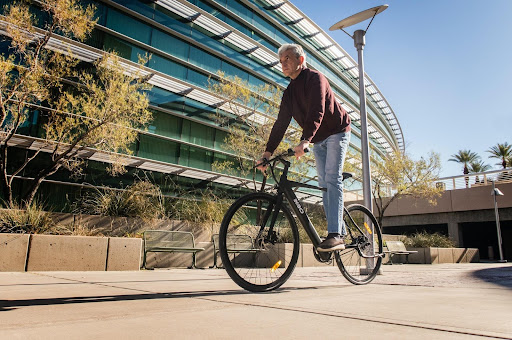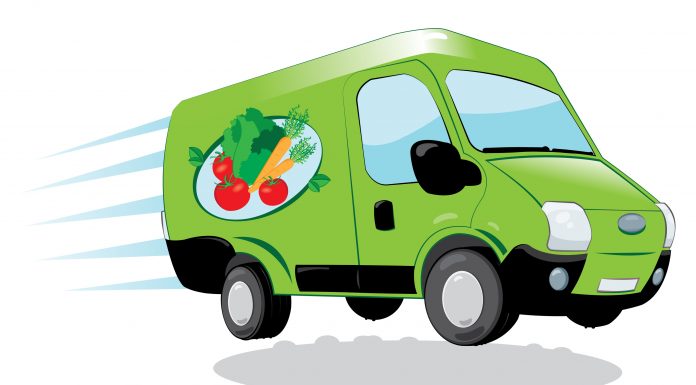As you age, your body constantly changes, causing you to rethink your lifestyle and adapt to these transformations. Probably the most worrisome of changes is in your metabolism, which slows down with every year that goes by. You started gaining weight in areas you shouldn’t, like in the abdominal area and around your internal organs, increasing your risks of developing diabetes, stroke, and other health issues.
Metabolism is a chemical process inside the cells that turn calories from food and drinks into energy. When your metabolism is fast, it uses more calories than you bring into your body, leading to weight loss. However, after 30 your metabolism begins to slow down and after 50 you can notice the appearance of fat deposits and loss of muscle mass.
This may seem discouraging, but not all is lost just yet. There are still things that can boost your metabolism and help you live a healthier life. Here are some of them.
Mind your macronutrients
Improving your metabolism is in big part tied to your diet habits and the food you eat. Before you start eliminating certain food groups from your meal plans, it’s essential to know about the macronutrients. All food belongs to one of the three macronutrient groups: protein, fat, and carbs. You need all of them for your body and mind to function properly, only not in equal quantities.
Eating more protein can increase your metabolic rate and make up for the loss of muscle mass. Fiber and whole foods also play a vital role in speeding up your metabolism since they keep your body fueled for longer. Bring more vegetables and fruits into your diet since they are full of vitamins, minerals, fiber, and other nutrients that will help you maintain a healthy weight.

Take more vitamin D
It seems that taking vitamin D supplements may help you speed up your metabolism, according to a Korean study from a few years ago. Researchers from the Department of Food Science and Human Nutrition at Chonbuk National University concluded that vitamin D has more roles than just keeping our bones healthy. Vitamin D deficiency is connected to various metabolic illnesses, like diabetes, cardiovascular disease, and obesity.
To get a daily dose of vitamin D, you can spend up to 20 minutes in the sun, but considering its harmful effects and cancer-giving properties, it may be best to go with supplements. Some foods are also a good source of vitamin D, so eat more red meat, oily fish, egg yolks, mushrooms, and fortified products, like cow’s milk.
Do more aerobic or cardio exercises
Aerobic or cardio exercises include a wide range of movements intended to speed up your heart and spend more calories. The benefits of this type of activity are improved breathing, lower blood pressure, weight control, and reducing risks of heart disease. Try bike riding at your local park or go to the community pool for swimming — both excellent workouts for aging joints, as well as your metabolism.
Dancing is also one of the recommended activities and is popular among seniors because you can meet new people and have fun. Walking and jogging are more comfortable to the lower extremities but will speed up your circulation just the same. Yoga is also a good choice that will not only bring up your metabolic rate but also help you take care of your whole musculoskeletal system, lungs, and mental health.

Do strength training to build muscles
You are losing around 3–8% of your muscle mass every decade after you turn 30, becoming even faster after 50. This process called sarcopenia can lead to up to 15% loss of your muscle mass each decade as you age. Since everything in the body is connected, when you lose muscle mass your metabolism starts to slow down.
The best way to take care of this is with strength training that will build your muscle mass. It will also increase caloric burnout and prevent what you eat to turn into fat. While weight lifting may be the first thing that comes to mind, you don’t have to go to the gym for strength training. Dumbbells, resistance bands, and pilates are excellent ways to increase your muscle mass at home and make your metabolism faster.
Hydrate with water
The only thing that is important for hydration is water. Sodas, juices, and other drinks contain sugar or artificial sweeteners, as well as a slew of chemicals that keeps them fresh and tasty. When you drink a glass of water, the body needs to perform a process called thermogenesis — expenditure of energy when digesting food.
According to a 2003 study at the Medical Faculty of the Charité in Berlin, drinking a large glass of water can increase your metabolism by 30%. This acceleration can happen 10 minutes after you drink water and can last for up to 40 minutes. Thermogenesis will happen every time you drink water so staying hydrated throughout the day is important to maintain faster metabolism.
Take control of stress
Stress stimulates the production of a hormone called cortisol that can have negative effects on your metabolism, as well as other bodily processes. This stress hormone is naturally produced when you are afraid, giving you more energy to react to the perceived danger. But it also elevates your blood sugar levels, making it as though you have eaten cake any chance you got. Because of this, your insulin levels go up since this hormone is responsible for taking that sugar to cells where it’s being stored as fat.
In a nutshell, the more stressed out you are, the more fat will accumulate in your body. Managing stress is not easy, but you can do it by taking control of your reactions and situations. Socialize more, choose a hobby, try meditation, and keep a journal. It may not get rid of stress completely, but it will bring more calm into your life and lower the cortisol levels.

In conclusion
While all these things can boost your metabolism right away, you should consider them for taking care of your overall health. Aging may bring wrinkles, but it also has some other effects on the body and mind that can lower the quality of life. So, be more active, eat healthily, and drink plenty of water to maintain good health and feel great as you age.























